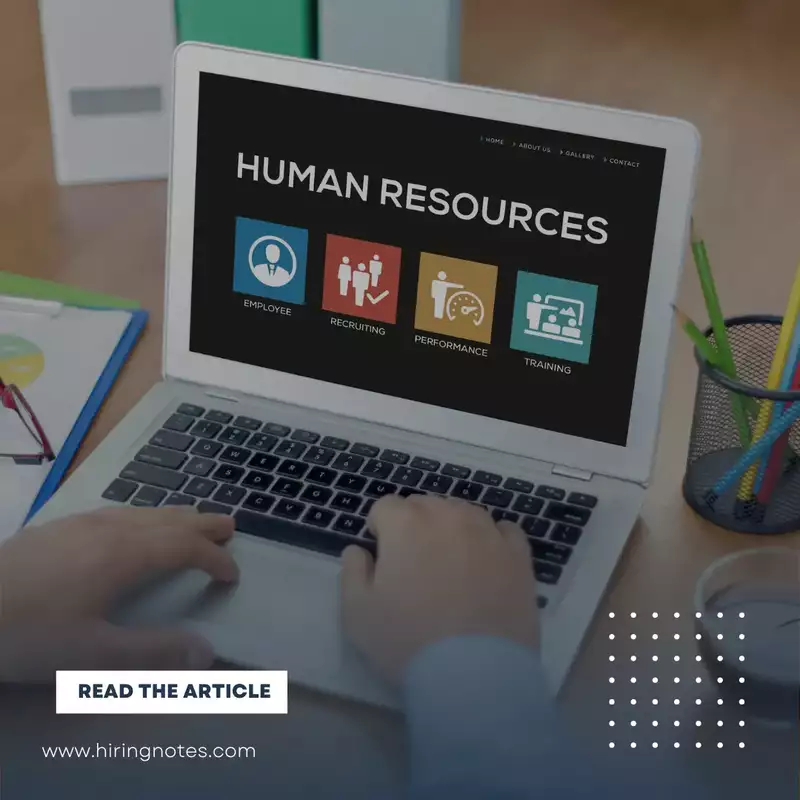HR & Administration
Human resources management is the central pillar of any modern organization. In a constantly evolving economic context where companies face unprecedented challenges, the human resources function stands out as a true lever of performance and competitiveness. Today’s HR managers do more than simply administer staff; they become genuine strategic partners, capable of supporting change and creating added value within their organization.
The New Challenges of HR Management
Changing employee expectations, the rise of remote work, the pursuit of a better work–life balance, and the growing importance of the employer brand are redefining the contours of human resources management. Companies must now rethink their practices to attract, retain, and develop talent in an increasingly competitive labor market, taking into account new working conditions.
Digitalization is profoundly transforming HR roles. Information systems automate many administrative tasks, freeing up time for higher-value-added activities. HR data analytics enable informed decision-making, while new tools facilitate internal communication and employee monitoring. The time savings generated by these technological solutions allow HR teams to focus on strategic initiatives.
From Personnel Administration to Strategic Management
The shift from personnel administration to a strategic approach in human resources marks a major evolution. Today’s HR leaders must manage diverse areas: labor law, payroll management, recruitment, training, career development, performance evaluation, industrial relations, and workplace well-being. Each role within the HR department has its own specific responsibilities.
The role of the HR manager requires solid training, often culminating in a bachelor’s (Bac+3) to master’s (Bac+5) degree. Key programs include degrees in human resources management, social law, or organizational psychology. This transformation demands continuous knowledge updates and new skill acquisition. HR training courses are proliferating to help professionals enhance their expertise and adapt to sector changes.
The Importance of Workforce Planning and Human Capital
In an uncertain economic environment, workforce planning becomes essential. It enables companies to anticipate staffing needs, identify critical skills, and plan necessary training. This proactive approach helps secure career paths and maintain employee employability, thereby supporting business growth.
Talent management is also a major challenge. Identifying, developing, and retaining high potentials requires a coherent HR strategy that includes training, internal mobility, and an attractive compensation policy. Companies invest heavily in creating a stimulating work environment that fosters innovation and creativity. The HR director and their team play a key role in this endeavor.
The Central Role of Compensation and Working Conditions
The compensation policy is a crucial lever for attracting and retaining talent. Beyond base salary, companies design packages that include bonuses, benefits in kind, and employee savings schemes. Payslips are constantly evolving to integrate new elements and comply with legislative changes. Gross salary, social contributions, and various bonuses must be managed with precision to avoid administrative errors.
Improving working conditions has become a decisive factor in employer choice. Flexible hours, workspace design, and health-and-safety measures all contribute to an attractive professional environment. HR managers must organize these aspects while complying with legal constraints and meeting employee expectations.
Our Articles to Enhance Your HR Management
Recruitment Checklist: Complete Guide to Optimize Your Hiring Process
Recruitment has evolved dramatically in today's competitive labor market. Organizations face mountin[...]Does HR Check for Job Abandonment Before Hiring? What Employers Need to Know
HR departments typically don't find job abandonment through standard employment background checks, b[...]Intern Status in France: Complete Guide for Employers
The intern status in France follows a precise legal framework defined by the Labor Code. An internsh[...]Job Hunters: Your Ally for Landing the Ideal Job
A job hunter is a professional specializing in personalized support for actively searching candidate[...]Service Employment: Complete Guide to CESU, Recruitment and Employer Obligations in France
Service employment represents a booming sector that facilitates the connection between private emplo[...]SMEs: How to Negotiate Starting Salary Without Losing Your Ideal Candidate
SMEs face particular challenges when negotiating salary with future employees. Unlike large companie[...]Optimize Your Recruitment ROI: Recruit Efficiently While Controlling Costs
Modern recruiting requires a data-driven approach to ensure the efficiency of hiring processes. Recr[...]5 tips for hiring a developer even without technical expertise
Hiring developers is now one of the greatest challenges for French companies.Freelance vs Employee: Which Status Costs Your Company Less?
Choosing between hiring a freelancer or an employee is a major strategic decision for French compani[...]Becoming a recruitment consultant: a comprehensive guide to the required skills
What are the responsibilities, educational requirements, salary, etc. of a recruitment consultant? H[...]Freelance recruitment firm: your partner for hiring freelancers
Thanks to its market expertise and tailored process, a freelance recruitment firm can offer the best[...]International recruitment firm: expert in placing talents abroad
An international recruitment firm plays a crucial role in a company's expansion beyond its borders b[...]Specialized recruitment firm: your expert recruitment partner
Looking for new talent for your company? Here’s everything you need to know about specialized recr[...]Complete Guide to Candidate Sourcing: Strategies and Methods
Discover the best candidate sourcing techniques to find your future talents and optimize your recrui[...]Recruitment Agency: Complete Guide to HR Services
Discover everything you need to know about recruitment agencies in our guide. Essential allies for f[...]Complete Guide to the HR Development Manager: Roles and Skills
To support their growth, companies rely on an HR Development Manager. Here’s everything you need t[...]Talent Recruitment Strategies: A Complete Guide for Businesses
Discover effective solutions to optimize your talent recruitment in 2025. Strategies, tools, and ste[...]Towards a divorce between companies and recruitment agencies?
Why Companies are Moving Away from Recruitment Agencies and How an Innovative Solution Could Change [...]Things You Need to Know Before Working with a Recruitment Agency
Optimize Your Hiring Strategy: Key Considerations for Partnering with Recruitment Agencies and Headh[...]Understanding Recruitment Fees: Complete Guide to Agency Costs and Pricing Structures
Discover the cost of hiring a recruitment agency in this informative article. From percentage-based [...]Towards HR Management 4.0: Digital Tools and Platforms
Artificial intelligence, process automation, and predictive analytics are revolutionizing HR practices. Integrated platforms facilitate time management, administrative tracking, and application processing. These tools enable HR assistants and project managers to more efficiently handle management information and generate real-time dashboards.
This digital transformation is accompanied by a particular focus on the quality of work life. Companies develop well-being policies, implement collaborative workspaces, and offer innovative employee benefits. Corporate culture and team motivation become key success factors, especially in SMEs where manager–employee proximity is stronger.
Securing Career Paths
Social management control enables monitoring of key HR indicators and identifying areas for improvement. Management information, collected and analyzed regularly, supports strategic decision-making. Job descriptions evolve to include new responsibilities and reflect changing roles.
Training management plays a central role in the development of human capital. Personalized training plans, the use of digital tools, and the development of internal mentoring help maintain a high skill level. Business leaders and top management increasingly value these investments, understanding their impact on overall performance.
The Evolution of Management and HR Practices
Human resources management now incorporates social networks as recruitment and communication tools. A company's e-reputation on these platforms directly influences its ability to attract talent. HR leaders must master these new channels while safeguarding employee data confidentiality.
Conflict prevention and dispute resolution are essential skills. Social dialogue remains a central element, requiring deep knowledge of labor law and negotiation techniques. Fulfilling these responsibilities demands experience and ongoing training.
To support you in this complex evolution, we have selected a series of articles covering all these issues. These resources will enable you to master the fundamentals of human resources management while discovering industry trends and best practices, regardless of your level of experience or role within the organization.
Building a Winning HR Strategy
The effectiveness of an HR policy rests on several fundamental pillars. Recruitment is the first critical step: attracting the right candidates, conducting quality interviews, and successfully onboarding new hires largely determine future success. Selection processes must be rigorous while conveying a positive employer image. Managing applications requires appropriate tools and meticulous follow-up to optimize the candidate experience.
Training and skills development represent a strategic investment. In a context of rapid occupational transformation, skill obsolescence poses a major risk. Companies that invest in continuous employee training gain a competitive edge. Training management must consider individual needs and organizational objectives.
The Importance of Administrative Monitoring and Social Management
Administrative monitoring of personnel is a fundamental task requiring rigor and precision. Managing employment contracts, absence tracking, leave administration, and personnel record updates are all essential tasks for the smooth running of the company. The personnel administration manager must master these aspects perfectly to avoid legal risks.
Social management encompasses all relations between the company and its employees. It includes negotiations with staff representatives, enforcement of labor law, and prevention of social risks. This dimension requires solid legal expertise and strong interpersonal skills. Adherence to procedures and knowledge of legal obligations are essential to fulfill these responsibilities.
Optimizing Time Management and Work Organization
Time management is a major challenge for the efficiency of HR services. Planning schedules, coordinating teams, and organizing activities require advanced organizational skills. Management tools help optimize these processes and increase efficiency.
Managing HR teams requires specific skills. The department head must know how to mobilize their team, set objectives, and monitor task completion. The motivation of HR staff has a direct impact on the quality of service delivered to the entire organization.
The Evolution of Tools and Practices
HR information systems continually evolve, offering new features and enhancing user experience. The ability to modify code, adjust settings, and customize tools becomes a sought-after skill. HR professionals must train regularly to master these technological developments.
HR data analysis (people analytics) transforms decision-making. Dashboards enable tracking key indicators and anticipating trends. This data-driven approach requires new analytical skills and strong mastery of reporting tools.
Future Prospects and Professional Development
The future of human resources promises to be rich in innovations. Artificial intelligence, blockchain, and new technologies will further transform practices. Professionals who adapt to these changes and develop the right skills will build strong and fulfilling careers.
To become an HR manager or advance in this field, candidates have various paths. Initial training (Bac+2 to Bac+5) provides theoretical foundations, while professional experience develops practical skills. Continuous training remains essential to maintain expertise and adapt to regulatory changes.
Your Path to HR Excellence
Whether you are an experienced professional looking to update your practices, a manager aiming to develop your team management skills, or a student considering a career in human resources, these articles provide a solid foundation for your professional development. Each HR function presents its own specifics and unique challenges.
Success in HR roles depends on a balance between technical skills and human qualities. Mastery of legal, financial, and organizational aspects must be accompanied by excellent interpersonal skills and a strong professional ethic. Respect for confidentiality and neutrality in conflicts are fundamental principles in these professions.
Feel free to delve deeper into the topics that best match your current needs and career goals. Human resources management offers many opportunities for specialization and growth. Investing in your education and developing your expertise will enable you to actively contribute to your organization’s success while building a rewarding and meaningful career in this ever-evolving sector.




















